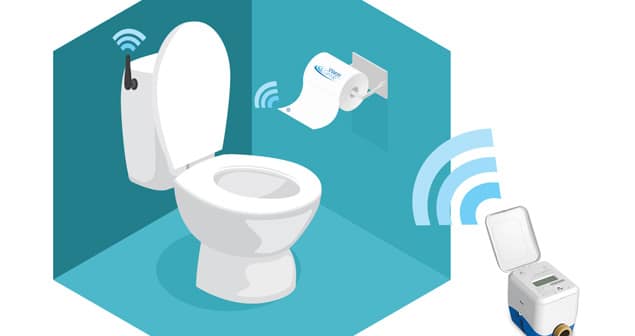- Contact Us
- +91-98111-55335
- [email protected]

Growth Of 5G Market And Its Impact On Economy
July 4, 2020
Some mid-range smartphones with powerful battery and processor
July 4, 2020How intelligent toilets can bring efficient public toilet management in India

The invention of intelligent toilets has been creating quite a ripple across the globe, considering their smart capabilities to gather insights into public health and diseases. A few months back, Numi 2.0, an advanced intelligent toilet, was recognised in the smart home category at the 2020 International Consumer Electronics Show (CES) Awards held in Las Vegas.
Talking about India, the state of public toilets is in a deplorable condition. Maintenance and sustainability of public toilets are among the biggest challenges across the country. Despite their several benefits, not many are aware of smart toilets. The intelligent toilet is still an untapped area, and this technology is yet to hit the mainstream in the country.
This article explores how intelligent toilets can help in mitigating the most neglected issues concerning public toilets.
Public toilet challenges in India
It is undeniable that poor public sanitation is one of the major concerns in India. Many do not have access to safe and private toilets till date. This is not a case that one witnesses only in remote villages, but also in the cities. It is a major concern for the country as human waste breeds various diseases and contributes to environmental pollution that kills nearly one thousand children each day. To contain the matter, the Swachh Bharat Mission was launched by Prime Minister Narendra Modi on October 2, 2014, which has made India open defecation-free to a large extent.
Under the mission, it has been reported that over 95 million toilets have been built across the country. The pressing problem is the upkeep and maintenance of these toilets. There is no mechanism to provide clear insights into water usage, hygiene conditions, infectious diseases, the number of people using the toilets, etc. In such a scenario, utilising the Internet of Things (IoT) enabled technologies can bring effectiveness in the whole operation and change the perception about Indian public toilets.
Toilet maintenance is indeed complex and not sustainable. Moreover, people don’t want to spend their entire day cleaning toilets and engage in this thankless job. This situation is not just prevalent in India; globally too, most of the public toilets remain defunct or close after six months of operations as there is no clear sustainability plan. Therefore public toilets powered by IoT and artificial intelligence (AI) are quite a realistic solution to fill gaps in the sanitation sector.
How intelligent toilets can benefit public
In today’s connected world, intelligent toilets can certainly bring a paradigm shift in public sanitation management. Supported by smart IoT technologies and several other innovations, intelligent toilets are capable of interacting and connecting with the central command centre. These toilets provide real-time updates, which makes it possible to monitor the situation from a remote location. The smart feedback helps extensively in increasing operational efficiency and data-driven decision-making. Smart toilets use the right amount of water, which reduces the wastage of water. Besides water conservation, smart toilets also save a lot of energy, which makes them environmentally friendly.
These are equipped with external CCTV cameras, sensors for automatic cleaning and flushing, choke detection, and voice announcement on mismanagement that alerts the officials in charge through IoT devices. These innovations can also accurately monitor footfall in a day.
The smell is one of the key problems that is difficult to deal with, especially when it comes to public toilets. With IoT smell indicators, it is possible to increase cleaning frequency to maintain hygiene. These toilets are fast and effective in mapping cleaning standards and frequencies.
The most interesting thing about intelligent toilets is their ability to yield insights into public health by analysing the waste. These toilets can detect early symptoms of a disease and can even identify the person from the fingerprint sensors embedded on the flush handle. After scanning the toilet, they send an alert to the cloud or an app on a smartphone. Such toilets have the capability to prevent a disease outbreak before it becomes a full-blown tragedy.
Besides, what makes it easier for the general public is the availability of apps that helps them to locate public toilets. These apps give information on opening hours, cleanliness ratings, water availability, the style of toilet, toilet fee charges, free toilets, etc.
As per a report, a normal flush toilet, when integrated with IoT, has the potential to beat wearable smart technologies. In the coming years, smart toilets are likely to capture health and fitness and tech space, too. Interestingly, Google was recently granted a patent for toilets that can help in tracking the user’s health condition by putting sensors on different parts of the washroom. In short, opportunities with intelligent toilets are endless.
Current scenario of intelligent toilets in India
In India, the penetration rate of these high-tech public toilets is still lagging despite the Indian government’s initiatives. However, there is an increasing awareness of smart toilets that can reduce the problems of public sanitation.
In recent years, many startups have shown interest in intelligent toilets and they have come up with several innovative concepts. These startups work in collaboration with a large number of government bodies. They have installed toilets in slum areas, metro stations, government schools, railway stations, refugee camps, etc.
In an interesting development last year, Google Maps listed over 57,000 public toilets in over 2,300 cities across the country. One can easily look up and search for the nearest toilet with the help of Google search, Google Assistant, or Google Maps and get instant results.
No doubt, smart toilets have been able to strike a positive impact on the public sanitation scenario. To ramp up the number of installations, the price factor, which is a major challenge, should be worked out without compromising the quality.
—Potshangbam July
